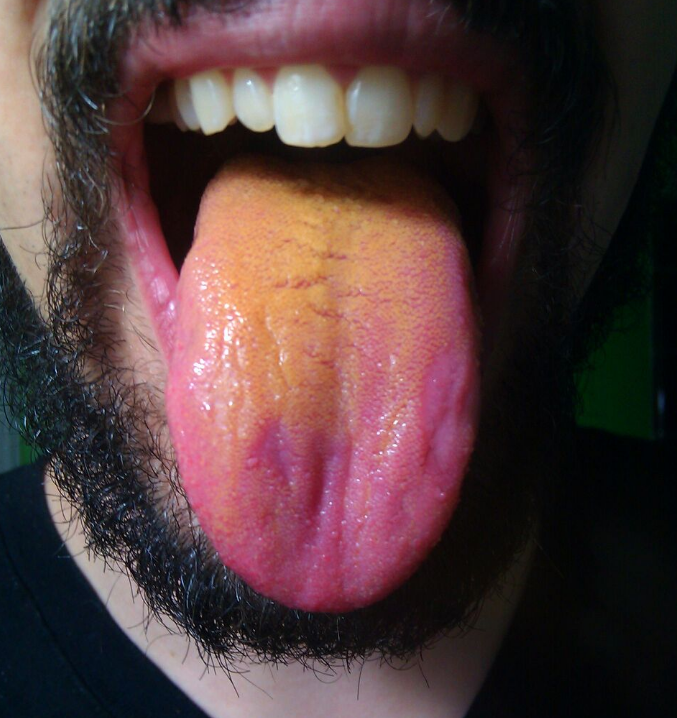Why is my tongue orange or what are some of the causes of the orange coating on tongue? Can bacterial or yeast overgrowth, acid reflux or food debris be responsible for this orange tongue menace? Get all the possible causes and cures for orange tongue discoloration.
An orange tongue (orange film or coating on tongue) refers to a kind of tongue discoloration that makes someone’s tongue to appear orange or have any of the shades of orange color including yellowish-orange, brownish orange, etc. It can affect young children (including babies and toddlers) as well as adults.
While in some people, the orange tongue coating is common at night while sleeping or when they wake up in the morning, to others, it is constant i.e. their tongue is always orange.
Furthermore, sometimes the orange color may be in patchy, spotty or furry. Here is a patient’s experience:
“I wake up take a shower brush my teeth and go to work and then I have this orangish color on my tongue that has a bad odor and I can’t make it go away”. – freezer143
Orange tongue symptoms
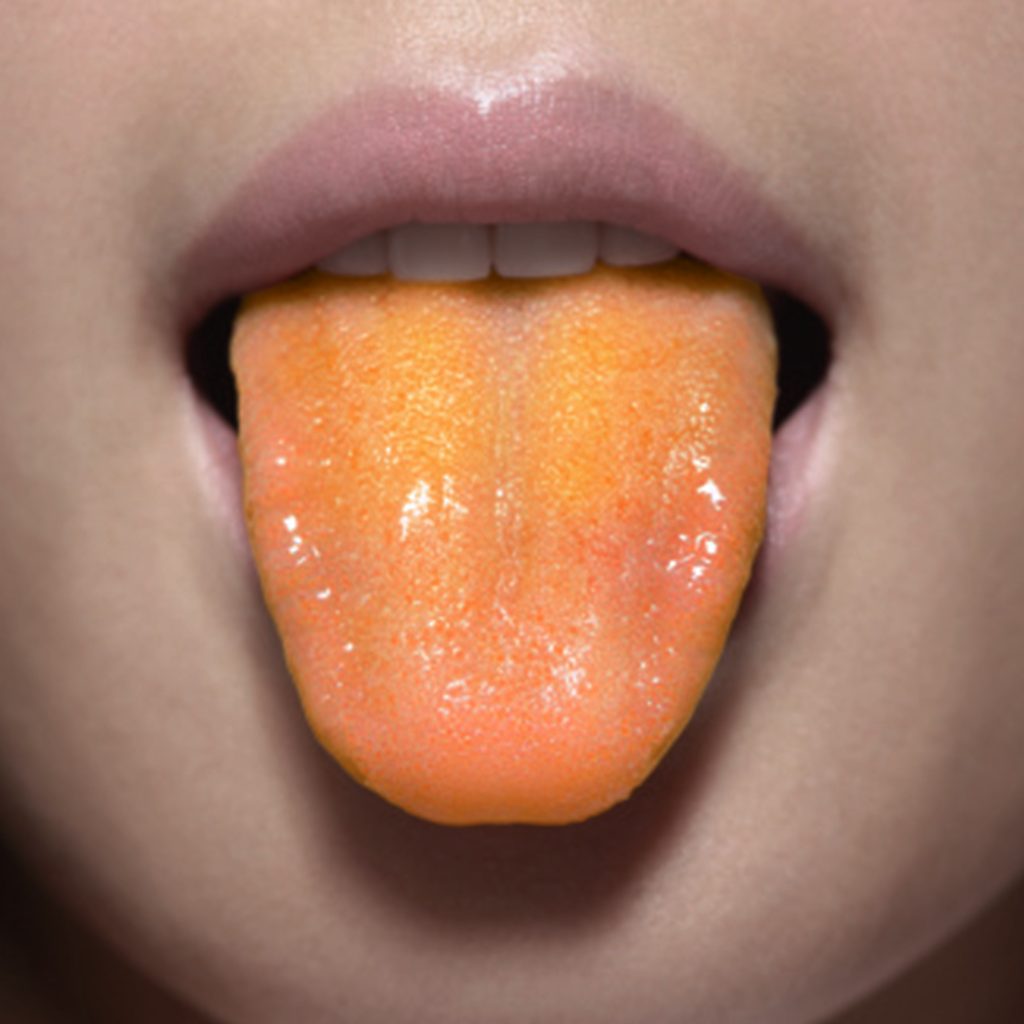
Besides your tongue turning orange, other common symptoms include unpleasant taste, tongue dryness and bad breath. A few patients have reported burning sensation, sore throat, among other symptoms.
Orange tongue diagnosis
Diagnosis of an orange-colored tongue will vary from physical observation to conducting a biopsy where a small tissue is extracted from your tongue for further close examination.
Why is my tongue orange? Orange tongue causes
If you have an orange coating on the tongue, there are many possible causes. Some of these causes are harmless while others might indicate an impending ill-health condition that needs your attention. Unless you are certain on what could be causing it, go to a doctor for diagnosis and treatment. So, what causes an orange tongue?
1.Food debris
According to Dr. Jonathan Richards, an endodontic, while answering a question on healthtap.com notes that the “foods and drinks can cause your tongue to be orange” i.e. the color of medications, lozenges, foods or drinks can make your tongue orange. If ignored for a long time, this can contribute to foul breath.
If the orange stuff on the tongue is due to food debris, use a tongue scraper or brush to remove them. Once you have done that, the yellowish film or coat will be gone too. This will also give you a fresher breath.
2. Orange tongue bacteria and yeast
A second possible cause of orange tongue discoloration is superficial bacteria and/or yeast overgrowth. To tell that yeast and/or bacterial overgrowth is the possible cause, check for symptoms such as bad breath or burning sensation on the tongue.
For instance, Ramichloridium Schulze fungus tends to be golden orange on Sabouraud’s glucose agar and brown-gray on corn-meal agar and can be responsible for the golden orange-colored tongue.
A simple cure for this is eating yoghurt with live culture daily for about a week to bring this overgrowth down. Also, brush the surface of your tongue at least twice in a day. If the symptoms do not subside, see your doctor for diagnosis and treatment.
3. Acid reflux – white or yellow-orange tongue
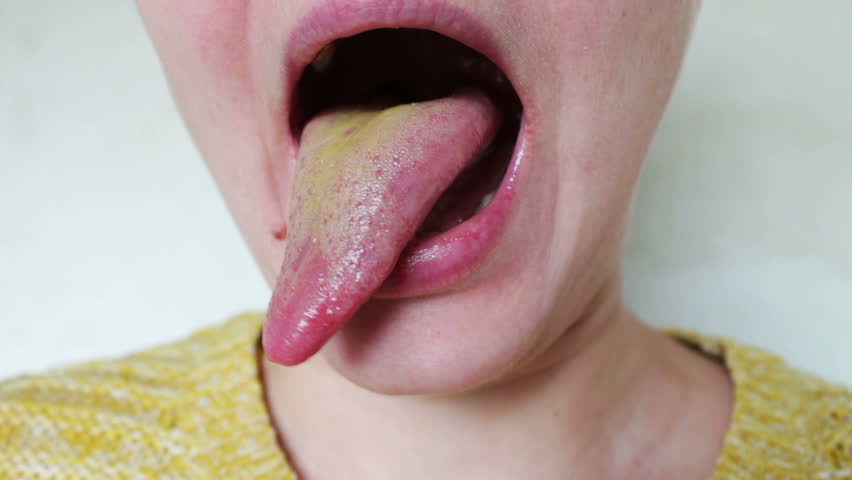
One of the main causes of the orange tongue is acid reflux or heartburn i.e. according to Dr. Oz, If you notice a white, yellow, or orange coating, it could indicate acid reflux, which, in severe cases, can lead to esophageal cancer.
Acid reflux happens when the one-way valve at the bottom of the esophagus opens up to let acidic content in your stomach to move up your throat to the back of your tongue i.e. back of tongue becomes orange or yellowish-orange.
This often happens while you are sleeping at night and you are likely to wake up in the morning with an orange coat or film on the tongue. Most people who have acid reflux might not be aware they have it.
To manage acid reflux, take medications such as Prilosec (omeprazole), antacids such as tums, Alka-seltzer, Maalox or Pepto-Bismol and change your lifestyle and eating habits i.e. avoid acidic foods (oranges, citrus fruits or lemons), spicy or fatty foods, alcohol, garlic, onion, tomatoes, coffee or tea, carbonate beverages, etc.
Furthermore, quit smoking, elevate your head while sleeping, don’t lie down immediately after eating (i.e. wait for 2 to 3 hours), eat smaller meals frequently, etc.
4. Orange tongue and antibiotics
The use of an antibiotic can at times disrupt the normal natural flora in your mouth and tongue. When this happens, a microorganism imbalance is created and one might end up with an orange-colored tongue.
One user on medhelp.org shares a similar experience i.e. “I was on the Prevpac for a few weeks and then Doxycycline for my acne shortly afterward. After starting Doxycycline, I started to notice my tongue was orange usually by the end of the day” – guest866
Dealing with orange coating on the tongue due to antibiotic use
To restore the normal balance after antibiotic use, take anti-fungal medications or herbs such as oregano and garlic to keep virus, fungus and yeast under control.
In addition, try herbal tea that contains lemongrass to help restore the balance in your mouth, take probiotics twice a day and/or eat live-culture yogurt
5. Mold in your environment
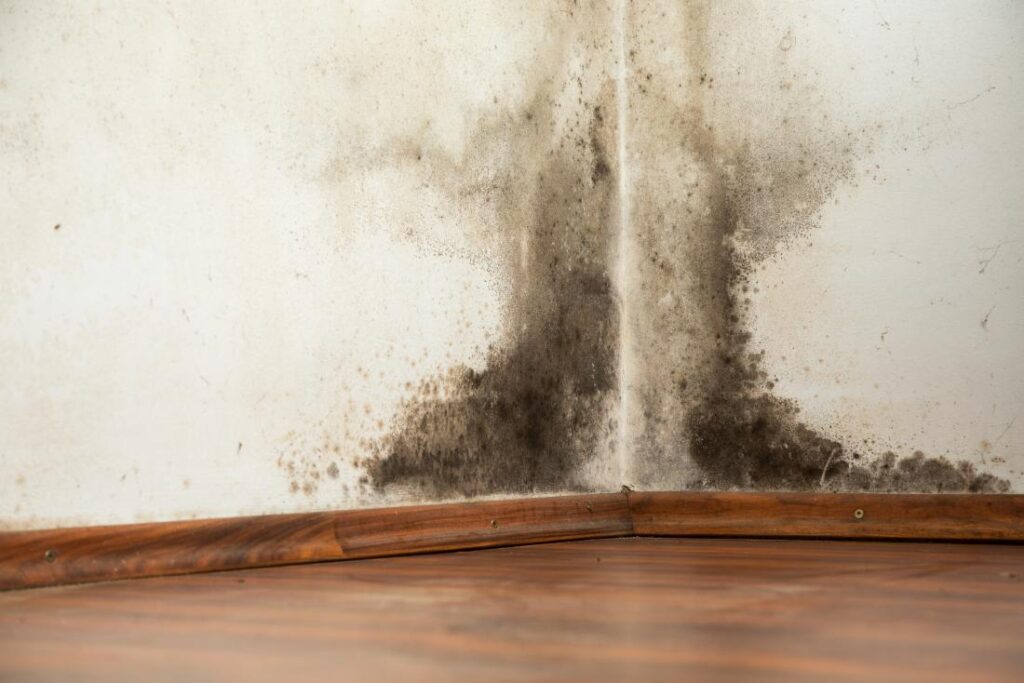
Having an environment with molds could lead to orange residue on tongue i.e. Orange tongue can also be caused due to the presence of mold in the environment at home or at work.
To solve this problem, get rid of the mold in your environment and try natural remedies such as gargling or taking grapefruit seeds orally. Anti-fungal medications might be of little help if you do not get rid of the molds in your environment.
6. Other causes
Other possible causes of orange coating on the tongue include allergies and oral thrush (which is a kind of yeast infection).
Is there an orange coated tongue and STD or HIV connection?
To clarify, the yellow tongue is not a symptom of HIV, STDs or cancer, unless it comes with other symptoms. However, people with weakened or compromised immunity due to STDs or terminal illnesses including HIV, Cancer, untreated diabetes, etc. will tend to often suffer from yeast overgrowth, which can make be responsible for the white, yellow or orange tongue discoloration.
Orange spots on the tongue
If you have orange spots on your tongue, the most probable cause is a fungal infection. If the spots are at the back of your tongue, it is likely that you have a throat fungal infection, which might come with a foul smell and a sore throat.
Baby orange tongue
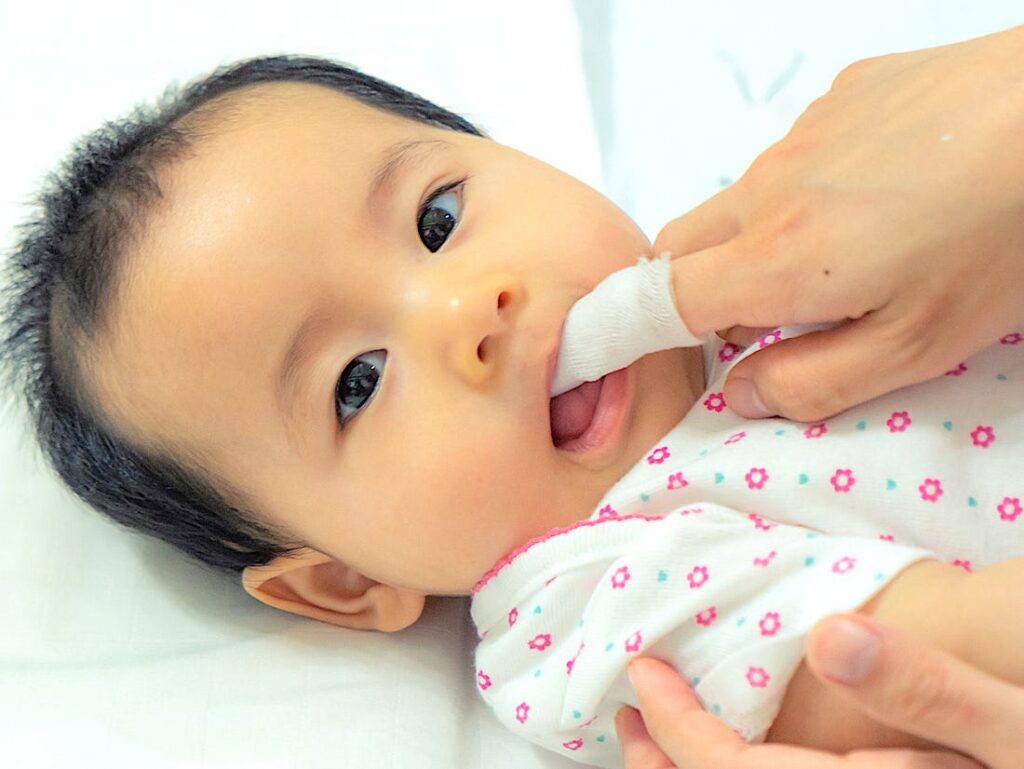
If your baby has a white, yellow or orange coating on its tongue, it could be due to oral thrush. Sometimes, instead of being white, oral thrush can make the tongue to turn orange. If not oral thrush, it could any other cause we have mentioned.
Orange tongue cure
While looking at each possible cause of an orange coated tongue, we mentioned the recommended cures for each. We are going to mention a few general tips and precautions that might be useful to anyone who has this problem.
Good tongue hygiene
An easy way to deal with orange color on your tongue is to keep good oral hygiene. Brush your tongue in forwarding strokes from the back of your tongue towards its tip.
Furthermore, try using various mouthwashes such as Listerine Antiseptic Mouthwash, Mouthwash Outlast Long Lasting Mint or ACT Total Care Rinse or Scope.
Change your diet

Avoid foods that promote yeast growth or cause acid reflux. Some of the foods you should avoid include coffee, candy, alcohol, white bread or any sugary foods, as well as excessive use of spices. Furthermore, reduce carbohydrate consumption with an exception of yucca, potatoes, oatmeal, bananas and plantains. Finally, reduce the consumption of dairy products except for yogurt, which is very helpful.

